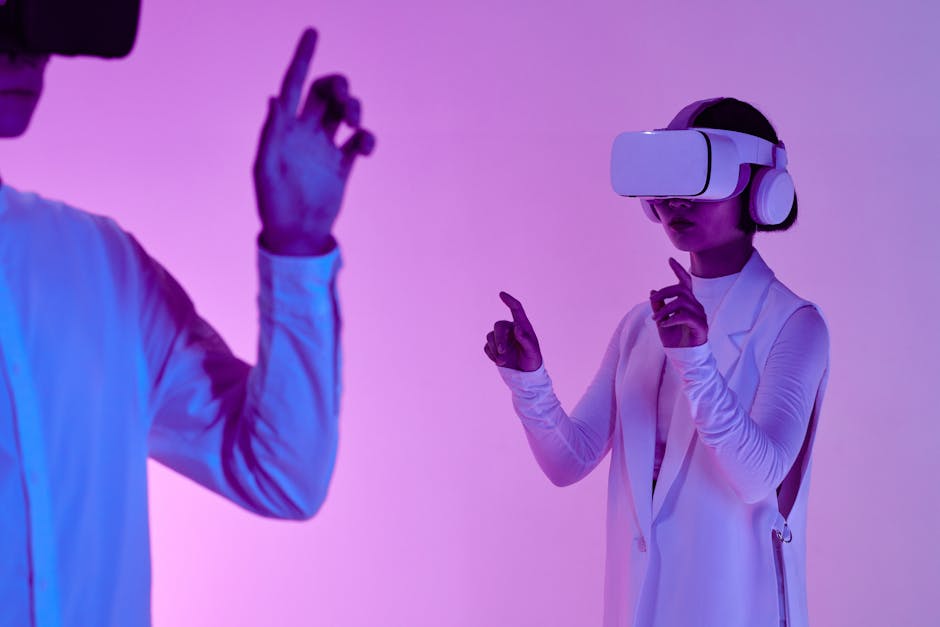The recent explosion of interest in artificial intelligence (AI) has many predicting that it will soon have a significant impact on employment. Some even argue that we are already at or near this state, with every position needing to be done being automated or streamlined by computer software.
This is not only true for low-wage positions but also high-paying ones like those involved in healthcare or finance. There’s little denying that technology plays an increasingly important role in our daily lives, and jobs dependent on processing large amounts of data seem primed to be swept away.
However, there is one area where experts disagree about whether automation can create new opportunities or destroy existing ones. This theory was popularized back in 1995 when two economists published a paper arguing that most job tasks can be automated.
Since then, researchers have found little evidence to support the claim that widespread automation means nothing more than people moving around heavy objects or checking emails. In fact, some studies suggest that automation may actually increase total output because of how it eliminates human bias and error.
History of AI

Over the last few years, there has been an explosion in interest in artificial intelligence (AI). Technically speaking, this is not the same as saying that people are investing more time studying how to use AI. What we mean by “artificial intelligence” is software or computer programs designed to perform specific tasks automatically.
The term was coined in 1956 when MIT Professor Seymour Papert described his concept of Artificial Intelligence as creating intelligent machines like humans. Since then, engineers have experimented with different applications of AI including chatbots, self-driving cars, and robots.
While some argue that advanced forms of AI will eliminate many current jobs, most agree that automation will create new opportunities for employment.
In fact, a recent survey found that almost half of all workers feel at least moderate pressure due to technology. And nearly one-third felt very stressed by it!
So what do you think about the future of work? Is automated labor replacing human employees too soon, or does it offer individuals and companies new ways to succeed? Let us know your thoughts in the comments below.
Advantages of AI

Recent developments in artificial intelligence (AI) have been getting lots of attention, with most discussions focusing on whether or not robots will take over all human jobs.
But what if we use this technology for things that are more ethical than replacing humans as labor?
There are many uses for AI where employing humans is far better than using machines to complete the work. For example, instead of having computers perform repetitive tasks such as calculating numbers or checking files, we can use AI to do something much higher level like writing essays or giving speeches.
In fact, some experts say we’re already experiencing an epidemic of cognitive automation due to software and online services that are heavily dependent on computer programs to carry out their functions.
This article will discuss five reasons why employment via AI is unlikely to result in mass unemployment but rather in the rise of new professions and career paths.
Disadvantages of AI

There are many claims that artificial intelligence will cause widespread unemployment and even an apocalypse. Some claim that intelligent machines will take over jobs, leaving humans with nothing to do or live off of. Others say that autonomous robots will eliminate our livelihoods as we’re replaced by technology.
These predictions seem very dramatic, but they miss an important factor: how well these systems are designed! If there are ever truly automated tasks that can be done efficiently, someone will create software to perform them. We already have examples of this in place today — check out all those chatbot apps that exist now.
Chatbots aren’t really sentient beings that want world domination (yet), but they do show us that creating automation software is a lucrative field. A small company could make a large income writing such applications, so it makes sense that people would keep doing it.
There may come a time when almost every job possible has been mechanized, but that doesn’t mean we’ll no longer need employees to produce goods and services.
Potential future impacts of AI

Recent developments in artificial intelligence (AI) have sparked massive interest, both positive and negative. Some see it as an opportunity to create new jobs or save existing ones; others are more cynical, warning that we’re already heading toward mass unemployment and that only elite professionals will remain employed.
Research suggests that automation is currently limited to specific tasks, but this could soon change. Technological advances mean that computers are getting much faster and able to perform complex calculations simultaneously, which makes sense given all the numbers crunching done for things like banking, insurance, and marketing.
This raises concerns about how well computer programs work due to potential errors caused by over-calculation. For example, if most people working with algorithms do not take time to check their math, then someone who doesn’t use math tools effectively may find themselves out of a job.
There has also been discussion around whether robots and intelligent machines should be granted person status under the law. If this happens, then employment legislation would apply, including protections such as paid leave and health benefits. This would obviously help avoid situations where employers can legally fire employees because they’re replaced by a robot.
Overall though, these changes are likely to result in some winners and losers. Those with specialized skills and knowledge will probably thrive, while those without will potentially be left behind.
AI and job loss

Recent developments in artificial intelligence (AI) have sparked mass hysteria among some. Technically proficient individuals are sounding alarms about how automation will cause large-scale unemployment, and even potential doom for our civilization as we know it.
Many people seem to assume that once robots perform tasks that require human reasoning or logic, jobs such as lawyers, doctors, and teachers will be out of work.
However, there is little evidence to back up this claim. In fact, studies show that employment levels increase slightly when technology replaces humans. This seems contradictory, but it makes sense when you think about it.
As more and more companies adopt automated software, their workload goes up proportionally. Since employers must compete with one another for workers, they often have to offer higher pay to attract them. Therefore, employment rates typically rise after new technologies are rolled out.
Experts refer to this process as “job substitution.” When this happens, though not all employees are replaced by machines, those who lose their positions can find other work.
Another myth surrounding AI and job loss is that only low-wage service sector positions will be affected. However, many high-paying professional positions such as surgeons, accountants, and business executives rely heavily on complex computer programs and robotics.
This article will discuss why these false assumptions are wrong.
AI and job creation
Recent discussions about whether or not artificial intelligence (AI) will result in job loss have often overlooked an important factor – how well companies use AI to improve their efficiency.
In fact, there are already several industries that seem to be investing heavily in automation and robotics with little-to-no layoffs. The automobile industry is a great example of this; car manufacturers now employ more people in factories designing cars than they do actually building them!
Another area where technology has replaced workers is in the health field. Doctors and nurses are being automated out of work due to advancements like computerized diagnostic tools and medical robots.
Overall, technological advances are creating opportunities for individuals who are very good at interacting with computers and software and giving employers new ways to optimize production processes.
This isn’t to say that we won’t see some level of unemployment as advanced technologies replace human labor, but it is important to recognize that AI can also create new jobs. Companies may choose to invest in AI because it improves productivity, which allows them to expand their business.
Furthermore, since AI is such a prevalent technology these days, many professionals are able to access it which increases its potential market size.
Tips for becoming an AI expert

Recent developments in artificial intelligence (AI) have people all across the world talking about technology like it will take over the planet. Many perceive that advanced computer systems will soon replace most, if not all, of the jobs we do today!
Some even refer to this as the “new digital revolution” or a “technology shift like the one from electricity to light bulbs.” But what is often missed is that many of these new technologies can also create new jobs.
New industries and ways of doing business are built every decade due to technological advances, so yes, there are always winners and losers with new innovations.
But how much job loss is too much? And which occupations are more vulnerable to being replaced by automation? To address those questions, MIT has created an interactive tool that allows you to explore how different areas of employment are affected by AI.
Start a business with AI as a core component

Recent developments in artificial intelligence (AI) have raised many questions about its long-term effects on employment. Some warn that advanced computer systems will soon outnumber humans at every level, from engineering to office work to management.
This argument is often framed in terms of how powerful computers are becoming and how quickly technology advances. Technically proficient users can now create their own software, for example, which removes the need to rely on professionally designed applications.
These individuals then take advantage of this technology by creating new apps or modifying existing ones to suit their needs.
The underlying assumption here is that most people are not skilled enough in technology to do these things, so it benefits those who are to make changes to them. This is what has happened already — we’ve all used word processors or video editing software that were written by someone else, but adapted to our personal uses.
More complex software is increasingly being automated away, leading to fears that jobs such as writing code will be rendered obsolete. What happens next depends on whether you believe that technology should empower everyone to succeed or if you feel that it should benefit only a select few.
